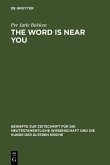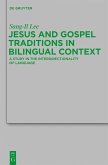The book first explores the connection between violence and eschatology in key literary and historical sources from Second Temple Judaism. The heart of the study then focuses on demonstrating the thematic centrality of Jesus' opposition to such "eschatological violence" within the Synoptic presentations of his ministry, arguing that a proper understanding of eschatology and violence together enables appreciation of the full significance of Jesus' consistent disassociation of revolutionary violence from his words and deeds.
The book thus articulates an understanding of Jesus' nonviolence that is firmly rooted in the historical context of Second Temple Judaism, presenting a challenge to the "seditious Jesus hypothesis"-the claim that the historical Jesus was sympathetic to revolutionary ideals. Jesus' rejection of violence ought to be understood as an integral component of his eschatological vision, embodying and enacting his understanding of (i) how God's kingdom would come, and (ii) what would identify those who belonged to it.
Dieser Download kann aus rechtlichen Gründen nur mit Rechnungsadresse in A, B, BG, CY, CZ, D, DK, EW, E, FIN, F, GR, HR, H, IRL, I, LT, L, LR, M, NL, PL, P, R, S, SLO, SK ausgeliefert werden.









